By: Dr. Ahmed Abdul Malik
A nation is a stable community of people formed on the basis of a common language, territory, history, ethnicity, or psychological make-up manifested in a common culture. A nation is more overtly political than an ethnic group, it has been described as “a fully mobilized or institutionalized ethnic group.
A very close term to Nation in Arabic Language is “Ummah”, although Ummah can also be translated to “community”.
The Western studies come with a different conception as they see the “nation” being the resultant of an interaction between two types of factors:
The first, are the objective factors like the language, history, race, single region, common interests, same aspirations, same traditions and habits, and same culture… etc.
Also Read: 77 Years Since Nakba, Palestinian Population Grows Tenfold
The second, are the subjective factors like the individual awareness that each person a singular and separate character urging him to express this distinctive character in an organized manner.
In the eye of the Muslims the word “nation” extends far beyond all times in what we call “The Religion of God”; here the nation starts with Adam and it encompasses all the prophets and messengers throughout their sacred passage through history. The nation after Prophet Muhammad (SAW) extends through all times and places, under all circumstances and for everybody alike.
Starting the age of the nation from the time of Adam (AS) as stated in the Qur’an gives a whole new meaning for the story, so it’s no longer just an acknowledgement of a fact or reality but it rather consolidates a concept upon which human unity can be founded.
The Glorious Qur’an is the first constituent that sets the concept of the nation in its new meaning, its broad and balanced concept that hinges on the unity of creed.
Also Read: Indonesia Must Do More Than Evacuate, Gaza Needs Us to Act Now
It was the first to reach out for the whole existence with its universal and humane call that sets aside any tribalism or fanaticism. It addressed humanity at large without any regard for time or place.
Allah says in the Holy Qur’an: “If Allah had willed, He would have made you one nation, but that (He) may test in what He has given you, so compete in good deeds. The return of you (all) is to Allah, then He will inform you about that in which you used to differ”. (Q5:48)
The above meaning is the original concept for the word “nation” even though there are many instances the interpretation of the word as equivalent to “community” or “group of people”.
The concept of the nation as it comes in Islam is the most unprecedented magnificent idea. Till our time it still remains to be a fount for every stream of faith urging the Muslims to “uniting” into a single “nation” where all the boundaries of race, language, fanaticism to lineage or kin vanish.
Also Read: The Recitation of Surah Al-Isra from Jakarta for Palestine
Islam is unique in creating this unity between its followers to include different spectrums of Arabs, Persians, Indians, Mongols, Chinese, Berbers, Africans and white races sprawling all over the globe and with all their diverse interests. No one has ever come out of this nation trying to split this link or trying to disconnect himself from it.
The Four Elements of the Nation from the Islamic Vision and Perspective:
A) A group dominated by believing in the fundamental tenets of the Islamic religion or the Islamic point of reference, whether this belief takes a doctrinal meaning (the Muslim) or a cultural meaning (the non-Muslim).
B) That this group has a single awareness in everything related to this point of reference, most important of which is submitting to this point reference and respecting all its integrated and ensuing systems that govern collective and individual behaviors as embodied by Sharia
C) That all the elements of this group fall under the umbrella of solidarity which comes in the sense of compassion, cooperation and acquaintance as in the verse,and made you into peoples and tribes, so that you might come to know each other.(Q, 49:13).
Also Read: The Importance of Environmental Awareness in Da’wah
D) The pivotal task for this collaborative group is the very essence of “dawa – invitation to the message” which comes through being committed to this point of reference in the collective and individual behaviors.
This commitment is the means to achieve the objective of being a witness for mankind as in the verse, so that you may act as witnesses for mankind, and the Messenger may be a witness for you (Q 2:143).
The fate of the nation, with these three tenets, can never be seen separately from the pathway of belief or invitation to the message because every quantum leap for the nation gives a major push to belief and the process of invitation to the message in reality and the other way round.
In all cases belief and invitation to the message will be the vitality and regeneration of the nation.
Also Read: Interfaith Dialogue and the Middle East Conflict
The Madinah Constitution: The first bud in establishing the features of the nation
This constitution that was compiled the minute the Prophet (SAW) set foot in Madinah was likely the first social contract to be written ever in the history of mankind.
The Muslims and the non-Muslims lived under this covenant which organized the public affairs and governed the relations between them and their neighbors.
Ibn-Ishaq says, “The Messenger of Allah wrote a document between the Emigrants [from Makkah] and the Ansar [the natives of Madinah], and in it he made a treaty and covenant with the Jews, establishing them in their religion and possessions, and assigning to them rights and duties.”
‘In the name of Allah, the All-Merciful, the Ever-Merciful. This is a document from Muhammad, the Prophet, governing the relation between the believers from among the Qurayshites (i.e., emigrants from Makkah) and Yathribites (i.e., the residents of Madinah) and those who followed them and joined them and struggled with them.
Also Read: Israel’s Underground Prison, Where Hamas and Hezbollah Fighters Are Held in Extreme Conditions
They form one and the same community as against the rest of men. No believer shall oppose the client of another believer. Whosoever is rebellious, or seeks to spread injustice, enmity or sedition among the believers, the hand of every man shall be against him, even if he be a son of one of them.
A believer shall not kill a believer in retaliation of an unbeliever, nor shall he help an unbeliever against a believer. Whosoever among the Jews follows us shall have help and equality; they shall not be injured nor shall any enemy be aided against them…. No separate peace will be made when the believers are fighting in the way of Allah.
The believers shall avenge the blood of one another shed in the way of Allah Whosoever kills a believer wrongfully shall be liable to retaliation, all the believers shall be against him as one man and they are bound to take action against him.
The Jews shall contribute (to the cost of war) with the believers so long as they are at war with a common enemy. The Jews of Banu Najjar, Banu al-Harith, Banu Sa’idah, Banu Jusham, Banu al-Aws, Banu Tha’labah, Jafnah, and Banu al-Shutaybah enjoy the same rights and privileges as the Jews of Banu Aws.
The Jews shall maintain their own religion and the Muslims theirs. Loyalty is a protection against treachery. The close friends of Jews are as themselves. None of them shall go out on a military expedition except with the permission of Muhammad, but he shall not be prevented from taking revenge for a wound”
The constitution focused on two pivotal issues in the field of governance:
1) Justice.
2) Organizing the Judiciary.
This is because the Prophet (SAW) realized very well the importance of these two cornerstones in any sound society.
After all he is the first judge in Islam who judged using the words of Allah, “…and when you judge between people, to judge with fairness…” (Q 4:58), and, “Do not let your enmity for others turn you away from justice.
Deal justly, that is nearer to being God-fearing…” (Q 5:8), and, “Allah commands justice, kindness…” (Q 16:90).
Also Read: Exclusive Interview with Prof. El-Awaisi: Knowledge, the Key to the Liberation of Al-Aqsa Mosque
The concept of a “nation” through the terms of the constitution: A socio-political entity that is based on thought and belief rather than blood or biological basics.
It is not limited by language, race or homeland. It does not sequester the thoughts and beliefs of others but it embraces them all without any assimilation.
It is capable of enlarging or shrinking according to the number of its followers or deserters. It clearly states that the Muslims or believers whether from Makkah or Madinah are one community and states clearly, “They form one and the same community as against the rest of men!” It is not characterized by any racism or tribalism.
The new thing about this principle is that it recognized the “nation” for the first time in the history of the Arab Gulf as a one indivisible unit, moving from the individual or the tribal life to the life of the single nation.
Also Read: Imaam Yakhsyallah: Nine Steps to Liberate Al-Aqsa and Palestine
The document identified the members from whom is formed the “one and the same community as against the rest of men” as the followers of the new religion from the muhajirin and ansar and those who will follow them later or fight on their side like the Arabs, the hypocrites and even the non-Muslim paid fighters, and the Jews.
It combined with this diaspora the nation in its broadest sense “the nation that got invited to the message” rather than the doctrinal sense “the nation that accepted the message”. From here Islam remains to be an ongoing comprehensive invitation and the whole world remains to be its scope of action.
The document ensured “equal rights and duties” between its parties and by this it ended racism and segregation in one go.
It stated, “The Jews shall be responsible for their expenses and the Believers for theirThe Jews shall maintain their own religion and the Muslims theirs.
Also Read: A Year of Al-Aqsa Flood Opens World’s Eyes
Loyalty is a protection against treacher The Jews of Banu Najjar, Banu al-Harith, Banu Sa’idah, Banu Jusham, Banu al-Aws, Banu Tha’labah, Jafnah, and Banu al-Shutaybah enjoy the same rights and privileges as the Jews of Banu Aw” That way the constitution affirmed the full bonding between the Muslims and non-Muslims based on justice and equity.
This equality is based on the common human value which is called “dignity” as Allah says, “We have honored the children of Adam, and have borne them on the land and the sea, given them for sustenance things which are good and pure; and exalted them above many of Our creatures.” (Q 17:70).
It also stated that its terms apply on those who have signed it and those who shall follow them later and fight with them (whether Muslims or non-Muslim) and by this it is the first treaty in the history that acknowledges the principle of joining treaties even after they are signed. (A/Hju/RE1)
Mi’raj News Agency (MINA)





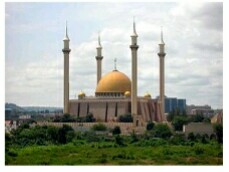








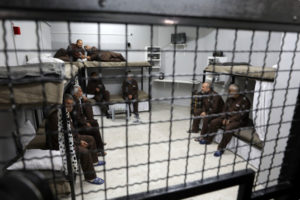
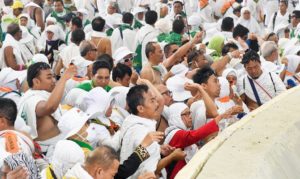

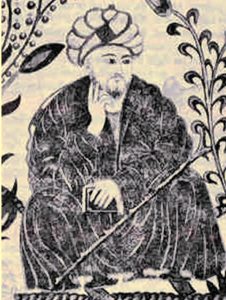
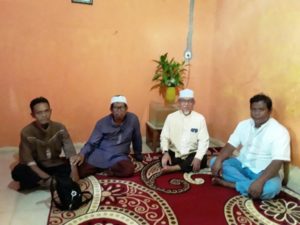




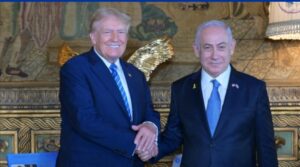





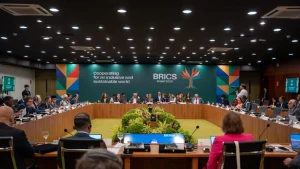





 Mina Indonesia
Mina Indonesia Mina Arabic
Mina Arabic